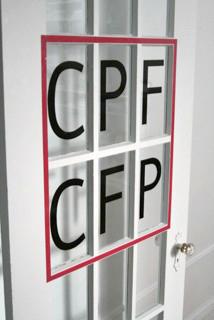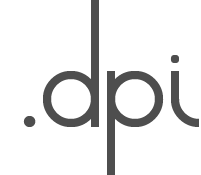 More than a year after the student uprisings in Quebec, how did some of the rethinking of education materialize? During the Centre for Feminist Pedagogy (CFP)’s “SKOOL” residency at Centre des arts actuels Skol this summer, .dpi interviewed Ania Wroblewski and Jen Kennedy, in Frenglish, as a way to launch a new collaboration via the journal’s blog. Keep your eyes open right here for articles documenting their activities and interests related to feminist pedagogy!
More than a year after the student uprisings in Quebec, how did some of the rethinking of education materialize? During the Centre for Feminist Pedagogy (CFP)’s “SKOOL” residency at Centre des arts actuels Skol this summer, .dpi interviewed Ania Wroblewski and Jen Kennedy, in Frenglish, as a way to launch a new collaboration via the journal’s blog. Keep your eyes open right here for articles documenting their activities and interests related to feminist pedagogy!
How did you meet?
C'est Brendan Fernandes qui nous a présentées.
What are the circumstances and reasons that led you to found the Centre for Feminist Pedagogy?
The concept for the CFP came out of years of conversations with a number of people. So, although Ania and Jen are administrating the project at this point, it’s important to note that it wouldn’t exist without having been nurtured and supported by there own feminist teachers. It was in 2007, when Jen was working with Aruna D’Souza, a truly inspiring feminist pedagogue, on an exhibition called “Efemera: The Art of Feminist Activism,” that she originally became interested in questions of feminist pedagogy. The idea to use a free school to explore these questions came the following year through discussions with Johanna Burton (who is a model the type of praxis the CFP strives for), Emma Hedditch (who had created feminist and women’s only spaces at the Copenhagen Free University), Liz Linden, Ilya Lipkin, and Catherine Mavrikakis. This list could go on, but these people were particularly influential.
Quelques années plus tard, en 2012, à Montréal, Ania et Jen qui habitaient alors pour la première fois dans la même ville, ont décidé de collaborer et de travailler ensemble sur un projet. Compte tenu de la situation politique et des débats sur l'éducation inspirés par les grèves étudiantes, le moment leur semblait propice pour lancer une université libre féministe. L'esprit révolutionnaire était dans l'air et Ania et Jen ont voulu y participer à leur manière.
What are your sources of inspiration and how do they influence the CFP?
Qu'est-ce qui nous inspire? Toutes les personnes citées plus haut, entre bien beaucoup d'autres, la discussion, le débat, l'humour, la mauvaise foi, l'appropriation, la collaboration et, bien sûr, les écoles libres suivantes :
Copenhagen Free University
Free University of LA
Open University
Manoa Free University
Informal University in Foundation
L’Université tangente
Malmö Free University for Women
Unitednationsplaza
Rochdale College
Anti University of London
The Free University of New York
Berlin Free University
Experimental College of the Twin Cities
Detroit Artists’ Workshop and also here
Drakabygget
What problems and/or issues particularly interest you?
Luce Irigaray described feminism as a jamming machine. We’re interested in using ideas and practices informed by feminism to jam-up, slow-down, disrupt, make trouble in, and otherwise interrogate the mechanics of traditional learning institutions and knowledge production today.
Pedagogy is an important part of feminism in terms of handling of ideas, but the relationship between feminism and pedagogy is contingent, unstable, malleable. Can there be specific tools for teaching feminist receptions of art? Is there a way to teach how to teach feminist art? Cherchons-nous à créer un « canon féministe » ou bien, le but du féminisme est-il de faire exploser la logique du canon? How can we have conversations about feminism that maintain its speculative urgency in relation to issues of class, race, education, and other ideas, without slipping into relativism? How can we discuss feminisms and feminist practices in multiple and maintain a political clear purpose? Comment poser toutes ces questions sans créer de nouvelles hiérarchies?
How can people get involved in the CFP?
Pour participer aux événements du Centre de pédagogie féministe pendant notre résidence de recherche cet été, venez-nous voir au Centre des arts actuels Skol. Les portes de la galerie sont ouvertes de midi à 17h, du mercredi au samedi. Stop by for a conversation, a spontaneous happening, an impromptu dance party, or something we can't even imagine.
We encourage people who have feminist or pedagogical projects and would like to collaborate with us to contact us at contact@feministpedagogy.org. We are open to programming suggestions too. Nous encourageons le partage des idées et même le plagiat. Prenez nos plans de cours, nos projets et faites-en ce qui vous convient!
In the fall, we’re hoping to take the CFP on the road, to visit new cities, to expand our network of collaborators, and to find new ways to get more people involved.
In collaboration with others, we’re working on creating a free school network, which will be a way to make information about free schools more accessible to the public and which would facilitate discussions, exchange, and sharing of resources between free schools.

Add new comment